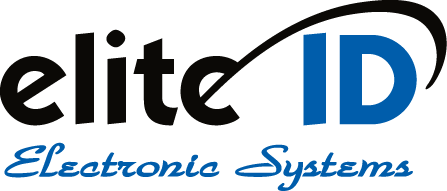Risk – What Are We Talking About?
Risk Is A Powerful Concept
A definition of risk is, “a situation involving exposure to danger.”
If you drive a car, you have an insurance policy. Most people have some kind of health insurance. You probably insure your house against damage and fire etc. You hope you will never need to claim against these policies, but if you do, you know you are covered.
Risk is what determines how often something adverse happens. You can affect that risk in many ways by your behavior, and that of your staff.
This article focuses on slip and trip injury. These principles apply in other areas also, directly.
Other risk areas can be:
- Loss of contract. Why would you keep a contract if you can’t prove you are diligent?
- Theft, fire, graffiti or other damage. Risk of these will reduce with regular staff patrols.
- Machine damage and safe operation. Checking for smoke, fire, leaks, other issues are all done by staff. Do they do these tasts?
Why Should I worry about it? I have insurance!
Ok. If you are drunk and drive a car, will your insurance pay up if you have a crash? Good luck with that. If you drink heavily and smoke, will your health insurer be happy about that?
It is exactly the same for security and cleaning contractors. If they allow a situation to exist that increases risk, it is possible that insurers will not pay out on their policy if something happens as a result of that risk. If they have a high incidence of claims, they may refuse to renew a policy.
Why? Simple. Insurers are not stupid, why should they pay if you do not take reasonable care to reduce risk? Check your policy, it is almost guaranteed that you will be required to reduce the likelihood of making a claim where at all practicable (in other words to reduce risk).
This is where the Elite-ID systems come into play. If you can show a record of diligence, of meeting your contractual obligations, your exposure to highly costly claims will be reduced. Nothing will reinforce this better than being able to show you attended a location seconds or minutes before something happened and have a record of doing this.
Look for the Win-Win. If your staff are doing what they should then the number of claims will be reduced. This is a win-win situation. Less claims, less payout costs. Successful companies understand this very well.
Can I Use The Elite Systems to Reduce my Premiums?
This is totally between you and your insurer. We have heard of clients wanting to do this, we have no definitive answer to this question one way or the other.
What we do know however, if you want to get Public Liability Insurance and you do not have a means to properly supervise staff then you may struggle to gain insurance at any cost. At the very least, we would expect your premiums to be high. Then also, your excess cost may be very high.
We have heard of clients with great histories, few claims, and their excess costs are in the order of $20,000 for a claim. They pay the first $20,000! Sadnly this is considered a ‘reasonable’ excess. Some clients have told me their excess is in the order of $50,000 per claim.
We do know of companies who have reduced their insurance costs by showing diligence, measuring performance, then have that backed up with less claims. Insurers may reward having less claims with lower premiums. Again, it is up to you and the insurer.
What Does All This Mean in Practice then?
With nearly 20 years of experience in shopping center cleaning, security and mobile guard patrols it is evident that – Risk of slip and trip injury is directly affected by staff attendance. More attendance = less slip and trips.
Companies who are diligent in ensuring staff patrol regularly and maintain vigilance of this, have the least slip and trip injury litigation. They are also the most successful.
What about security? It is exactly the same. The more security patrols the less graffiti, damage and theft occurs. That is why you have security staff!
If you use the Elite-ID systems effectively, you can manage and optimize staff patrol patterns accordingly.
